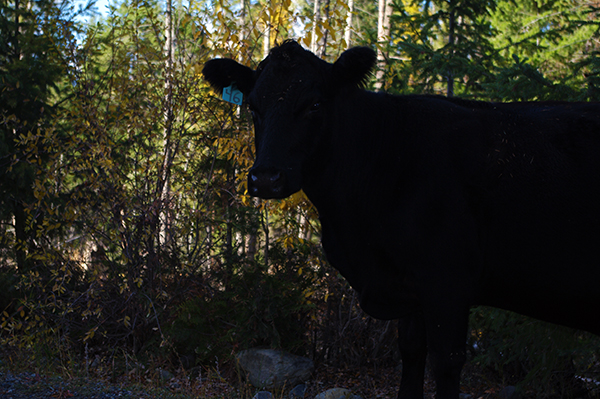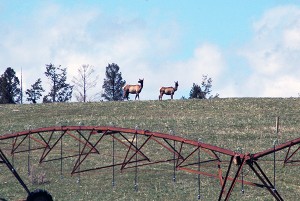Home »

Range Act changes to benefit rangeland users
Changes made to the Range Act and Range Act regulation to improve the management of B.C.’s rangeland will come into force today, Forests, Lands and Natural Resource Operations Minister Steve Thomson announced Dec. 1.
The regulatory changes reflect a commitment made in the BC Jobs Plan and a recommendation of the Ranching Task Force to improve the regulatory framework for range tenure holders.
“These changes provide ranchers and rangeland users with increased flexibility and opportunity to run their businesses, while also supporting the government’s goal of environmental sustainability,” Thomson said.
Lary Fossum, president of the B.C. Cattlemen’s Association stated, “The B.C. Cattlemen’s Association is pleased to see the amendments to the Range Act and the Range Act regulation come into force. These changes will simplify the administrative process for producers and the ministry. It will allow ranchers to do better long-term planning while giving them the confidence and security to invest in the industry and the land so we can continue producing some of the best beef in the world.”
 Scott Ellis, executive director of the Guide Outfitters Association of B.C. added, “British Columbia’s guide outfitting industry welcomes the changes to the Range Act and the Range Act regulation. Simplifying and restructuring the fee system is a positive step and the move to synchronize the issuance of Guide Outfitter Certificates with long-term tenures provides greater business certainty for our members.”
Scott Ellis, executive director of the Guide Outfitters Association of B.C. added, “British Columbia’s guide outfitting industry welcomes the changes to the Range Act and the Range Act regulation. Simplifying and restructuring the fee system is a positive step and the move to synchronize the issuance of Guide Outfitter Certificates with long-term tenures provides greater business certainty for our members.”
The changes to the Range Act regulation:
* Streamline the process for approving agreements (permits and
licences) so vacant Crown range can be allocated more quickly and efficiently;
* Simplify the fee structure and eliminate some fees;
* Improve business certainty for range operators by allowing longer terms on tenures, and also allow the conversion of grazing permits issued prior to 2004 to grazing licences; and;
* Enable the conversion of grazing leases to grazing licences, providing tenure holders more flexibility to manage their businesses.
The changes to the Range Act regulation will also give licence holders and other agreement holders more freedom to manage their operations by removing the requirement for operators to obtain ministry approval before selling their excess hay production. The changes will also allow a holder of multiple tenures to more easily consolidate or subdivide those tenures.
Ranching operations are typically family-run businesses that have been in operation for several generations and are the backbone of many rural communities.
B.C.’s cattle producers directly employ about 2,300 people and generate about $351 million of economic activity each year.
The guide outfitting industry in British Columbia directly employs more than 2,000 people and generates about $116 million of economic activity each year.
e-KNOW







